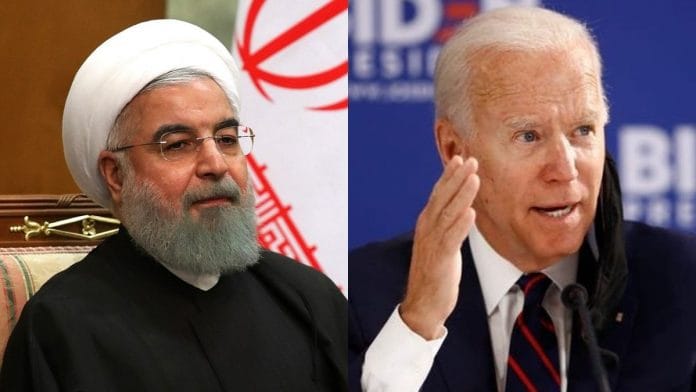In the Middle East, when leaders react to a provocation by reserving “the right to respond at the time and place of our choosing,” it is usually the tell of a weak hand. Consider how often the regime in Tehran has deployed that turn of phrase — most recently, against the U.S., after the killing of the military commander Qassem Soleimani, and against Israel, after the killing of the nuclear-weapons expert Mohsen Fakhrizadeh. The louder the threats, the emptier they tend to be.
So when the shibboleth is intoned by the enemy, the Iranians tend to assume that it, too, must be mere bluster. They didn’t believe the Trump administration’s warnings of retaliation for the killing of American servicemen in Iraq, and they seem to have ignored a similar admonition from the Biden administration.
On Monday, less than a week after White House press secretary Jen Psaki invoked the “right to respond in the time and manner of our choosing” to multiple recent attacks by Iranian proxies in Iraq, Tehran’s minions fired three more rockets in the direction of the U.S. embassy in Baghdad.
The Iranians now know Biden wasn’t bluffing. On Thursday, in his first overt use of military force, the president authorized U.S. air strikes on Iranian-backed militias in eastern Syria who were involved in attacks in Iraq. At least 22 Iraqi militants were killed in the strikes, and three ammunition trucks were destroyed.
The Iranians and their proxies were caught completely off guard. They had been lulled into a sense of impunity by the administration’s early reticence in attributing blame for the attacks in Iraq and the White House’s determination not to “lash out and risk an escalation.”
Or perhaps they assumed that Biden would turn a blind eye on Iranian aggression in the hopes of resuming nuclear diplomacy, just as President Barack Obama did in the run-up to the 2015 nuclear deal, known as the Joint Comprehensive Plan of Action. They were not alone: European diplomats, too, assumed the Biden administration’s apparent restraint in the face of Iranian provocations — including the attacks in Iraq and Tehran’s threats to increase uranium enrichment — reflected a desire to stay the diplomatic course.
Biden has now demonstrated that he can walk and chew gum at the same time. Tehran and the other signatories of the JCPOA cannot question his sincerity in seeking a return to negotiations: The president has already pulled the U.S. back from the aggressive posture Trump adopted toward the Islamic Republic. But they can no longer believe that Biden will be as complaisant as Obama.
The air strikes in Syria were carefully considered and executed, apparently in consultation with allies — in other words, nothing at all like the Trump-ordered attack that killed Soleimani at the start of last year. They came after Biden had spoken with Iraqi Prime Minister Mustafa al-Kadhimi, and both men agreed that the militias behind the rocket attacks must be held to account. In all, seven 500-pound bombs were dropped on buildings used by the militias close to Syria’s border with Iraq. Biden was offered larger targets but demurred.
There was no Trumpian braggadocio from Biden, no threats of disproportionate retaliation and no reason to make U.S. allies nervous. But was it enough to induce nervousness in Tehran, and its vast network of proxies and partners across the Middle East?
If the past is any guide, the Islamic Republic will want to test Biden’s resolve some more. But the regime in Tehran knows that an escalation will imperil chances of an American return to the JCPOA, and make it harder for the other signatories to advocate in Iran’s favor. European patience with its nuclear brinkmanship is already wearing thin ahead of next week’s International Atomic Energy Agency meeting, where the Biden administration will ask other countries to support a formal censure of Iran. – Bloomberg
Also read: Joe Biden takes first military action with strikes on Syria militias







Biden was projected as everything that Trump was not. But bread and butter issues do not change and that is the armament industry in US. They keep the governments and the parties in money. For political mileage the names may change but the bottom line does not change.